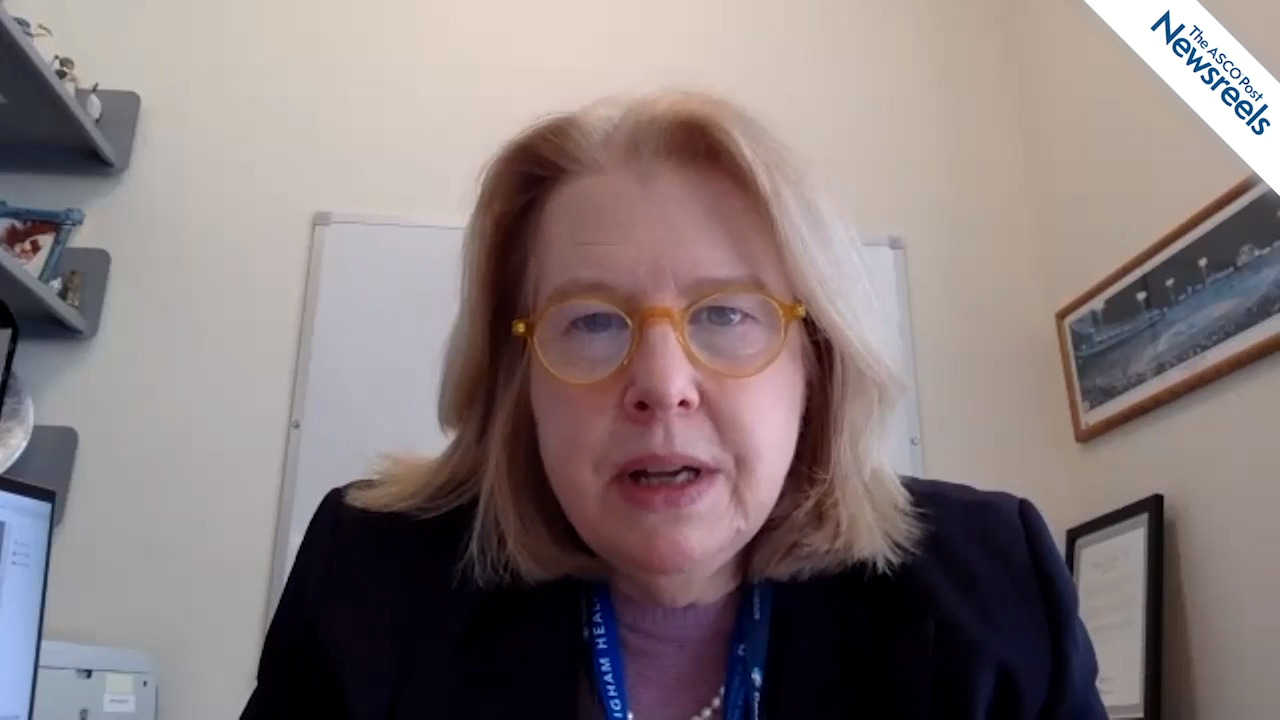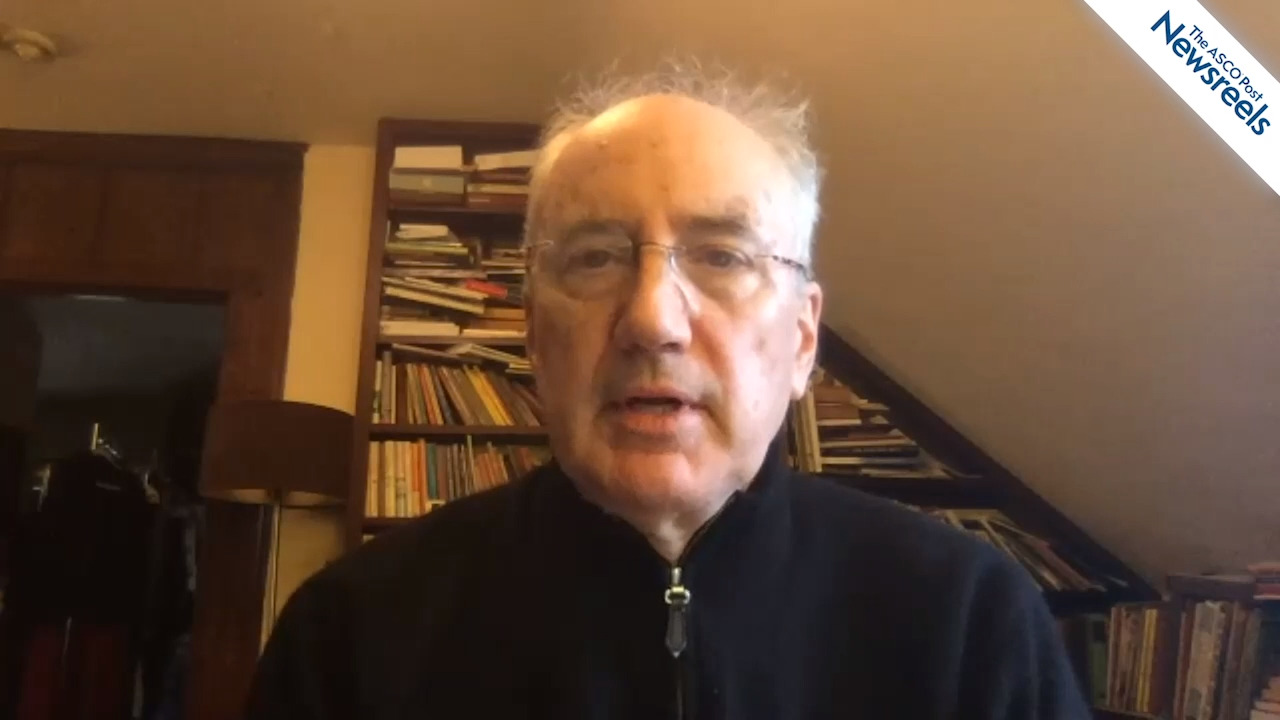Related Videos
Amir A. Jazaeri, MD, on Metastatic Cervical Cancer: The Role of Immunotherapy
Amir A. Jazaeri, MD, of The University of Texas MD Anderson Cancer Center, discusses data on the safety and efficacy of adoptive cell transfer using autologous tumor-infiltrating lymphocytes (LN-145) to treat patients with recurrent, metastatic, or persistent cervical carcinoma whose tumors have progressed on prior systemic therapy (ID # 10224).
Ursula A. Matulonis, MD, on Ovarian Cancer: Niraparib as Maintenance Therapy
Ursula A. Matulonis, MD, of Dana-Farber Cancer Institute, discusses phase III results from the ENGOT-OV16/NOVA study on the long-term safety and efficacy of niraparib as maintenance therapy in patients with platinum-sensitive ovarian cancer with either a BRCA mutation or a tumor with high-grade serous histology. Women in the study have responded to their most recent chemotherapy containing a platinum agent (ID #: 11139).
Edward L. Trimble, MD, MPH, on Cervical Cancer: A Global WHO Initiative
Edward L. Trimble, MD, MPH, of the National Cancer Institute, discusses the World Health Organization’s global strategy to speed the elimination of cervical cancer through vaccination, screening, treatment, and training for multidisciplinary teams in gynecologic oncology care. This marks the first time that 194 countries have committed to such an effort (ID # 10203).
William H. Bradley, MD, on Ovarian Cancer: 5-Year Follow-up on Maintenance Olaparib
William H. Bradley, MD, of the Medical College of Wisconsin, discusses results from the SOLO-1 trial on maintenance olaparib after first-line platinum-based chemotherapy for patients with newly diagnosed advanced ovarian cancer and a BRCA mutation. Almost half of the patients treated with olaparib in the study were disease-free at 5 years, vs 20% of those treated with placebo (ID# 10224).
Dana M. Roque, MD, on Ovarian, Fallopian Tube, and Peritoneal Cancers: Possible New Therapeutic Option for Heavily Pretreated Disease
Dana M. Roque, MD, of the University of Maryland Medical Center, discusses phase II results showing that weekly ixabepilone plus biweekly bevacizumab may improve overall response rate as well as progression-free and overall survival for women with platinum-resistant or -refractory ovarian, fallopian tube, and primary peritoneal cancers, a population in need of treatment choices.





